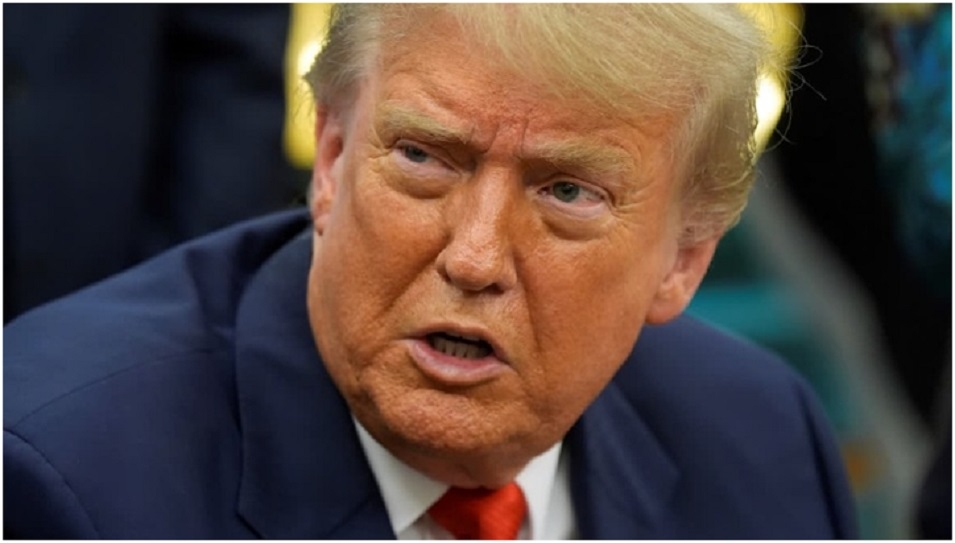Trump 'No Longer Has Plans' To Visit India for Quad Summit: NYT
12 Sep 2025 15:22:29

New York: US President Donald Trump “no longer has
plans” to visit India later this year for the Quad Summit, The New York Times
claimed on Saturday, as it detailed how relations between the American leader
and Prime Minister Narendra Modi “unraveled” over the last few months.
In the report titled 'The Nobel Prize and a Testy Phone
Call: How the Trump-Modi Relationship Unraveled’, the NYT, citing people
familiar with Trump’s schedule, said that “After telling Mr Modi that he would
travel to India later this year for the Quad summit, Mr Trump no longer has
plans to visit in the fall.”
There was no official comment from either the US or
India on the NYT's claim. India will host leaders of Australia, Japan and the
US for the Quad Summit, scheduled to be held in New Delhi around November. The
Trump administration hosted the Quad Foreign Ministers’ Meeting in January this
year, a day after Trump took the oath of office as President for a second term
in the White House.
Amid trade tensions between Delhi and Washington, the
NYT article gives an account of how relations between Trump and Modi
“unraveled” after Trump’s repeated claims of solving the four-day conflict in
May between India and Pakistan, an assertion denied by India.
“President Trump’s repeated claims about having 'solved'
the India-Pakistan war infuriated Prime Minister Narendra Modi of India. And
that was only the beginning,” the NYT article said, adding that Modi was
“losing patience” with Trump.
Trump and Modi had spoken over the phone on June 17, a
35-minute phone call that happened as Trump returned to Washington from the G7
Summit in Canada, which PM Modi also attended. Modi and Trump were scheduled to
meet on the sidelines of the G7 Leaders’ Summit in Kananaskis, but Trump
returned to Washington early. Before departing Kananaskis and wrapping up his
first visit to Canada in a decade, Modi had a phone conversation with Trump in
Washington.
Foreign Secretary Vikram Misri had said in a video message
from Kananaskis that Modi clearly conveyed to Trump that at “no point” during
the days following Operation Sindoor was there any discussion, at any level, on
an India-US trade deal, or any proposal for a mediation by the US between India
and Pakistan.
The discussion to cease military action took place
directly between India and Pakistan through the existing channels of
communication between the two armed forces, and it was initiated at Pakistan's
request.
Prime Minister Modi firmly stated that India does not and will never
accept mediation, Misri had said.
The NYT article said that during the June 17 phone call,
Trump said again how proud he was of ending the military escalation and
mentioned that Pakistan was going to nominate him for the Nobel Peace Prize, an
honour that has been bestowed on former US President Barack Obama and one for
which Trump has been “openly campaigning”.
“The not-so-subtle implication, according to people
familiar with the call, was that Mr Modi should do the same,” and also nominate
Trump for the Nobel, the paper said.
“The Indian leader bristled. He told Mr Trump that US
involvement had nothing to do with the recent ceasefire. It had been settled
directly between India and Pakistan,” the NYT said.
“Trump largely brushed off Mr Modi’s comments, but the
disagreement — and Mr Modi’s refusal to engage on the Nobel — has played an
outsize role in the souring relationship between the two leaders, whose
once-close ties go back to Mr. Trump’s first term,” the NYT said. The NYT noted
that the White House did not acknowledge the June 17 call, nor did Trump post
about it on his social media accounts. Trump has repeated his claim of stopping
the conflict between India and Pakistan over 40 times since May 10.
“And it is also the tale of an American president with
his eye on a Nobel Prize, running smack into the immovable third rail of Indian
politics: the conflict with Pakistan,” it added.
The report added that, as Trump imposed additional
tariffs of 25 per cent on India for its purchases of Russian oil, “the colossal
penalties on India in particular appear to be punishment for not falling in
line rather than any kind of cohesive effort to reduce the trade deficit or cut
off funding for” Putin’s war.
The NYT article quoted chair on India at the Centre for
Strategic and International Studies, Richard Rossow, as saying that it was
“about more than just Russia.”
“If this was a real change in policy in trying to
squeeze Russia, Trump could have put his weight behind legislation that would
have imposed secondary sanctions on countries that buy Russian hydrocarbons.
The fact that they have uniquely targeted India says this is about more than
just Russia,” Rossow was quoted as saying.
The NYT article further said that Trump, “frustrated by
the tariff negotiations”, reached out to Modi several times, but the Indian
leader “did not respond to those requests.”